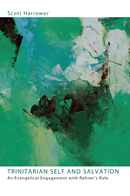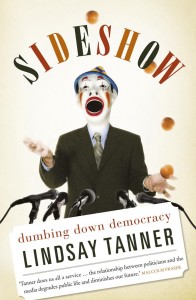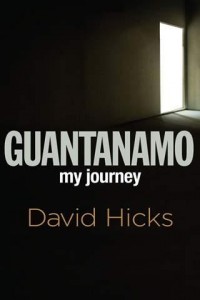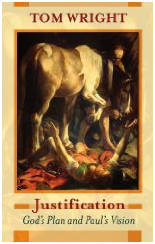Review: The Evangelical Universalist
 “Evangelical Universalism” – an intriguing theological framework It’s “universalism” because it’s a belief that all will eventually be “saved.” It’s “evangelical” because unlike other forms of universalism it maintains that Christ is the one and only way to salvation, and does not deny the authority of Scripture. On the face of it, it seems to be oxymoronic. But someone who strikes me as thoughtful challenged me to read the book, and so I did. Some time ago actually, but things have been busy.
“Evangelical Universalism” – an intriguing theological framework It’s “universalism” because it’s a belief that all will eventually be “saved.” It’s “evangelical” because unlike other forms of universalism it maintains that Christ is the one and only way to salvation, and does not deny the authority of Scripture. On the face of it, it seems to be oxymoronic. But someone who strikes me as thoughtful challenged me to read the book, and so I did. Some time ago actually, but things have been busy.
MacDonald writes well, with an appropriate studiousness and humility. My views are sympathetic with annihilationism and much of his arguments against the “traditional view” presuppose eternal torment and I approached my read with this in mind.
His introduction outlines his personal motivations in studying the topic. In many ways it is a basic theodical angst:
“The problem was that over a period of months I had become convinced that God could save everyone if he wanted to, and yet I also believed that the Bible taught that he would not. But, I reasoned, if he loved them, surely he would save them; and thus my doxological crisis grew. Perhaps the Calvinists were right – God could save everyone if he wanted to, but he does not want to. He loves the elect with saving love but not so the reprobate… Could I love a God who could rescue everyone but chose not to?… I longer loved God because he seemed diminished. I cannot express how deeply distressing this was for me…” (Page 2)
From this point he moves on to some more detailed philosophical considerations and then some exegetical considerations which he hopes will allow “universalist theology… to count as biblical.”
MacDonald exhibits some hermeneutical depth, drawing on Thomas Talbott he is honest about his assumptions:
“Talbott asks us to consider three propositions:
1. It is God’s redemptive purpose for the world (and therefore his will) to reconcile all sinners to himself.
2. It is within God’s power to achieve his redemptive purpose for the world.
3. Some sinners will never be reconciled to God, and God will therefore either consign them to a place of eternal punishment, from which there will be no hope of escape, or put them out of existence all together.
Now, this set of propositions is inconsistent in that it is impossible to believe all three of them at the same time…
Universalists thus have to reinterpret the hell texts. But they are in a situation no different from Calvinists or Arminians in this repect. ‘Every reflective Christian who takes a stand with respect to our three propositions must reject a proposition for which there is at least some prima facie biblical support.” (Page 37, 38)
And he brings a decent biblical theology to bear. Consider the diagram on Page 77 and also 105, which pretty much sums up his third and fourth chapters, that correlates crucifixion->resurrection of Christ to Israel’s exile -> return (via the suffering servant) to the fall -> (universal, in his view) restoration of humanity. This also gives a decent missiological ecclesiology:
“Thus, the church is seen as an anticipation in the present age of a future salvation for Israel and the nations in the new age. This, in a nutshell, is the evangelical universalist vision I defend.” (Page 105)
It is clear through all this that his motivations and arguments are, indeed, evangelical, even if we may question his conclusions.
It is somewhat difficult to argue against him as he does a great deal to argue that a number of theological frameworks (Calvinism, Molinism…) are compatible with universalism. So what framework do I use in any rejoinder? He could always escape into a different framework. Nevertheless, my concerns include:
1) A view of hell as mere purgatory. Apart from anything else, this quantifies grace. Some receive enough grace to be saved in this life, some need grace extended into the afterlife. In his appeal to the omnibenevolent God that makes hell redemptive, one could simply ask why the omnibenevolent God invokes hell at all and simply saves everyone forthwith, or, if there must be pain, through trials and revelations of truth in this life. Some form of hell must be invoked to maintain biblical warrant, but seems superfluous in a universalist framework.
2) Where does the universalism end? If all humanity is restored, then given his hermeneutical framework, all creation is restored. Does this mean salvation, say, for the devil and the demonic cohort, who are creatures? I didn’t see him deal with this but it raises significant questions both exegetically and theologically.
3) What does it do with our kerygma? While MacDonald usefully ties ecclesiology to soteriology, in application and proclamation he runs into difficulties in his framework. He says, drawing from Colossians, that “the Church must live by gospel standards and proclaim its gospel message so that the world will come to share in the saving work of Christ” (Page 52). But by his framework, this mode of proclamation is arbitrary and contingent – it will presumably finish, incomplete, at the day of judgement. Unless of course the redemption in hell is also done through the proclamation of the church but then we really are stretching into conjecture.
4) There are times when I think he mishandles corporate/individual salvation. His transition into considering Abrahamic covenant as a transition from nation to individual is too simplistic (Page 55). His desire to undermine categorical understandings of salvation for “all people” in Romans 5 ignores the context of Jew/Gentile categories (Page 83). Perhaps he has a need to extract individuals from the judgement on nations (and vice versa), but this again stretches into conjecture.
In the end, however, my problem comes down to “how would I preach this?” And the answer is, I don’t think I could. The finality of judgement is what gives us the impetus to cry “Maranatha”, it’s what energises our nurture as we provoke one another “all the more as we see the Day approaching”, it’s what stimulates our mission so that the Son of Man may find active lively faith on earth when he returns. These are activities, yearnings, longings, directions, purposes that inherently and rightly belong to this Kingdom, this age. To belay any aspect of these things to another mode of redemption appears antagonistic to the whole gospel imperative.
I agree with his theodical concerns. His hermeneutical critique has some merit. But if I must choose which framework to use I would still lean towards annihilationism as that which best encapsulates the biblical revelation.
This is a well written book. It does not dishonour Scripture. It is not intended to undermine the Christian gospel. It is worth engaging with. But in the end it takes us to places that are unwarranted and unhelpful.










